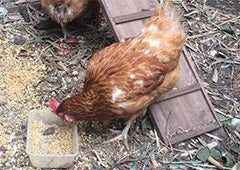By now you have probably heard of flaxseed oil, flaxseed, or even just flax. Maybe you read it as part of an ingredients list, saw it in a supermarket, or even heard some yogis discussing it at the gym. While you may have passed it off as just another ‘buzzword’ or ‘superfood’; there is plenty you should know about this super seed.
What is it?
Flaxseeds, which are also known as linseeds, are cultivated from flax which is one of the oldest fibre crops in the world.
Flaxseed is one nature’s richest sources of omega-3, containing 50 to 60 per cent omega-3 fatty acids in the form of alpha linolenic acid. They are also incredibly rich in antioxidants, B Vitamins, dietary fibre, protein and potassium, making them a very sought after dietary supplement, found in both a ground ‘meal’ form, and also as an oil.
Why should it be included in our diet?
Because of all the inclusions listed above flaxseed is very enriching and beneficial for good health. As our bodies cannot produce essential fatty acids, we must obtain these nutrients from food sources, as our body requires them to be able to function properly. With flaxseed containing high amounts of both Omega 3 (just 1 teaspoon contains about 2.5 grams) and Omega 6 fatty acids, they are the perfect source to get this fix.
As well as this, flaxseeds have been found to do a wealth of good for peoples health in a number of different areas. some of their main health and healing properties include;
-
Promote good heart health- can help lower blood cholesterol and blood pressure
-
Assist in lowering bad cholesterol
-
Can help to control constipation, hemorrhoids, gallstones and diverticular diseases
-
Help with the treatment of acne, eczema, psoriasis, sunburn and rosacea, thanks to it’s anti-inflammatory properties
-
Nourishes and promotes healthy hair and nail growth
-
Helps with minimising nerve damage that can result in tingling or numbness, and other nervous system disorders
-
Reduces cancer risk- in particular colon, breast and prostate cancer. Each can benefit from treatment involving flaxseed
-
Protects against various effects of ageing
-
Has hormone balancing lignans and plant estrogens which help to treat menopausal symptoms, menstrual cramps, fertility problems, and associated disorders
It is recommended that an adult should consume between 1 and 3 tablespoons per day to reap the above health benefits.
How can I incorporate them into my diet?
Flaxseed has quite a strong nutty and rich yet sweet flavour, and once incorporated into your cooking the taste isn’t too bold. As stated earlier you can get your flaxseed fix in an oil or a ground meal form (they need to be consumed in this form in order to be able to be digested properly), and there are varying ways to use each.
Flaxseed Oil
Flaxseeds are pressed to form the nutrient packed flaxseed oil. To ensure it is providing you with the nutrients it should be, ensure that it is only ever processed at low temperatures, never heated, and should be kept refrigerated at all times. If you’re game, you can eat it with a spoon straight from the jar, or alternatively, try out some of the methods below…
-
Toss a few spoonfuls into your next smoothie blend
-
Mix some flaxseed oil with olive oil and a squeeze of lemon to dress your next super salad
-
Swap out butter for flaxseed oil with your mashed potatoes- the creamiest most delicious mash is guaranteed
-
Drizzle over veggies- steamed, boiled, roasted or stir-fried, they are all equally delicious
-
Stir a tablespoon or two into your morning porridge to start your day off right
Flaxseed Meal (Ground Flaxseeds)
To be able to be digested properly, flaxseed should not be consumed as the whole seed, instead ground into a fine meal (such as you would with almond or hazelnut meal). You can get flaxseed meal as part of a blend known as LSA (linseed, sunflower and almond), which is a great health booster for your meals. This along with flaxseed meal should be stored in an airtight container. There are plenty of ways you can incorporate this nutritious meal into your everyday diet..
-
Stir it through a big bowl of yoghurt and fruit, or porridge for a nutritious breakfast
-
Sprinkle it over your next salad to turn it into super salad!
-
Add some to your next baking venture- perfect in bread or muffin mixtures for a fibre boost
-
Throw a few tablespoons into your favourite smoothie
-
Coat chicken or fish with it for a lighter more nutritious crumbing
-
Sprinkle it over your eggy breakfast to get your fibre fix first thing!
Where can I get it?
Flaxseed oil and flaxseed meal has become increasingly popular within the last few years, so while it once was only found in health food stores, you can now get your flaxseed fix from most supermarkets and pharmacies (and they won’t break the bank either!).
So when you wake up tomorrow morning, put down the toast and nutella and enjoy a nourishing bowl of yoghurt and berries sprinkled with flaxseed instead, for the perfect way to start your day!


















